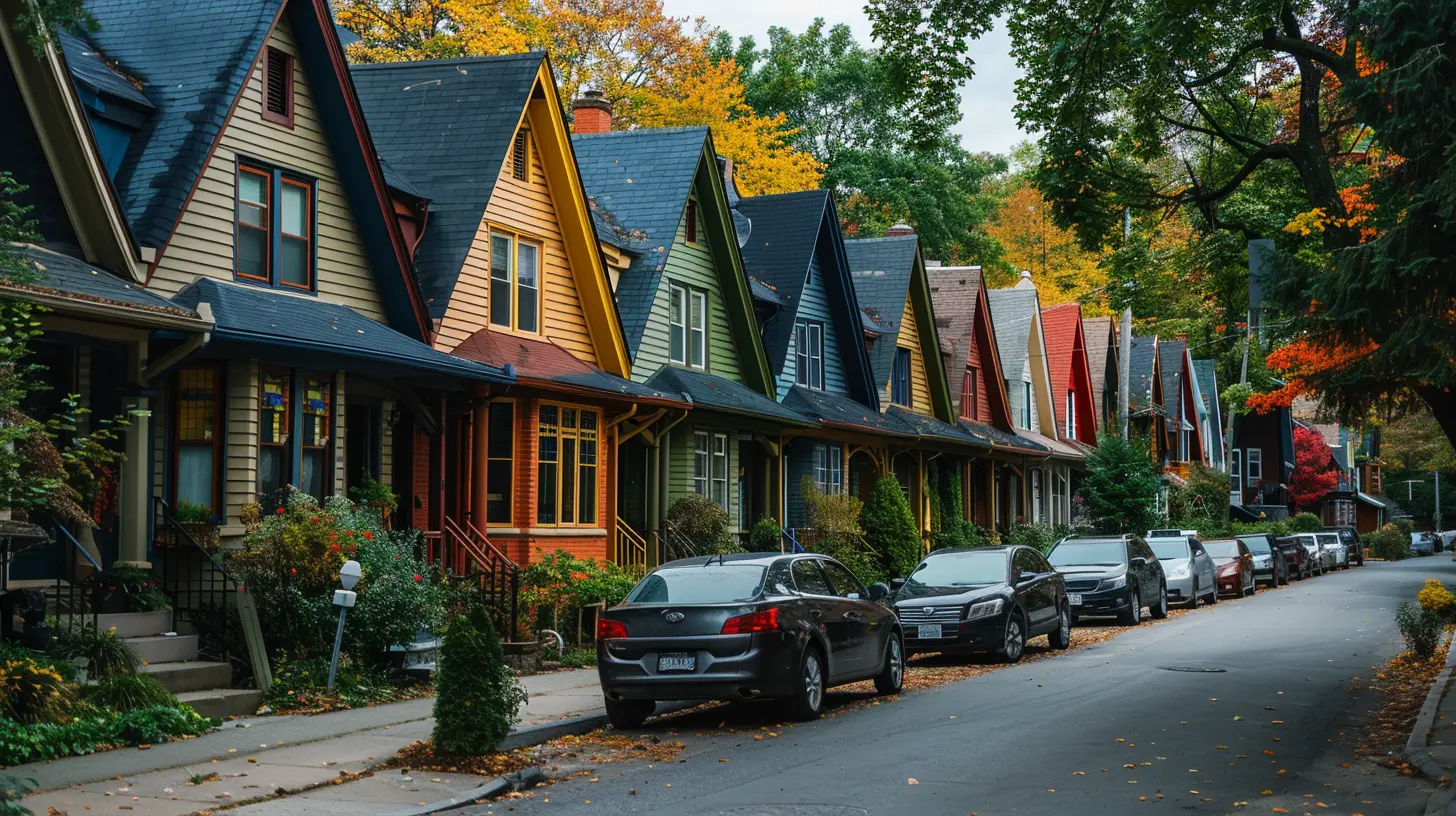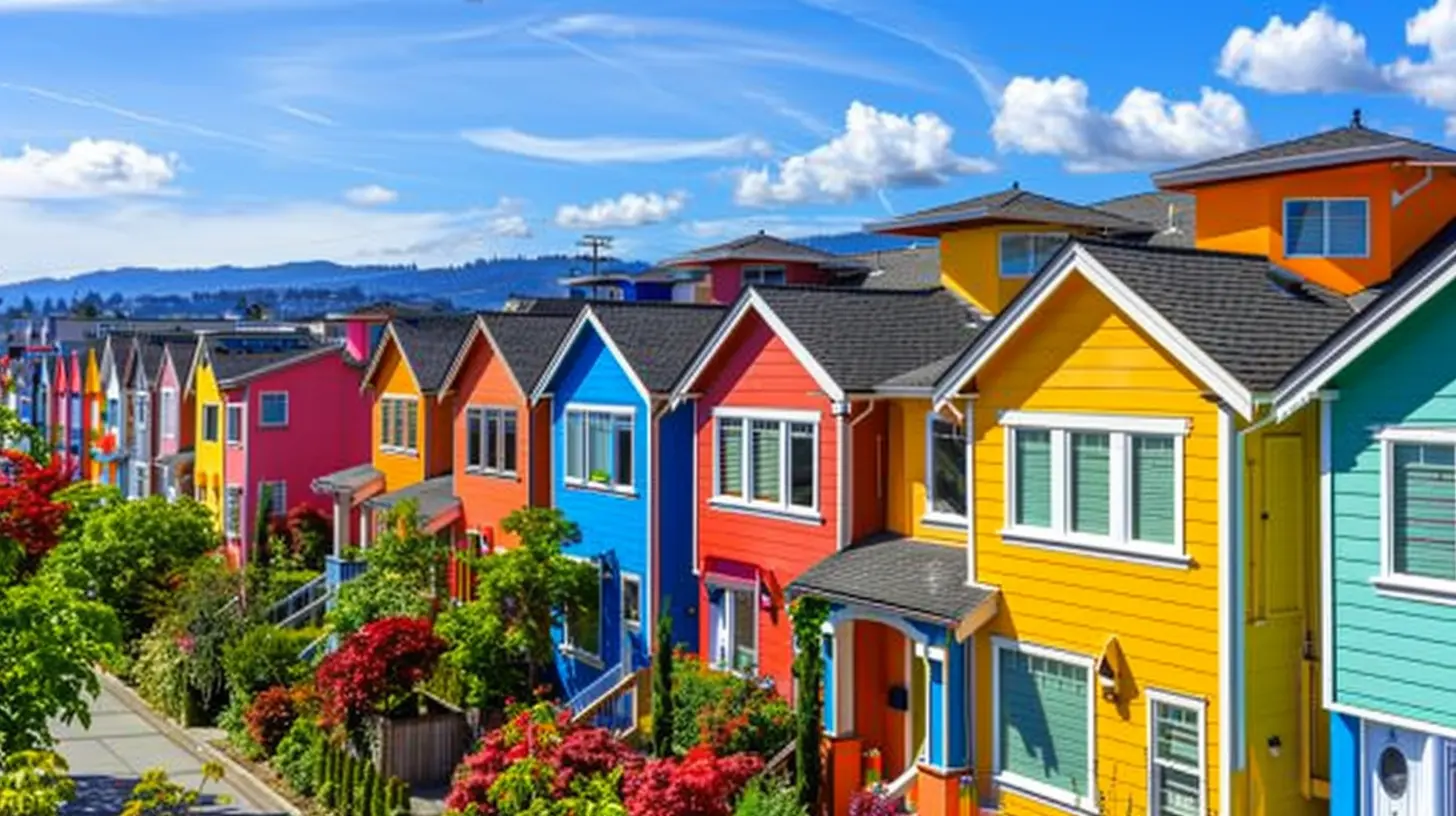The Role of Zoning Laws in Limiting Housing Supply
12 September 2025
When you think about why housing prices are skyrocketing, you might immediately blame inflation, high demand, or slow construction. While all of those play a role, one of the biggest culprits that often flies under the radar is zoning laws. These regulations, which dictate what can be built and where, have a massive impact on housing supply. But are they helping or hurting the housing market?
Let’s dive into the world of zoning laws, break down their effects, and see how they might be restricting the number of available homes. 
What Are Zoning Laws?
Zoning laws are rules set by local governments that determine how land can be used. These laws categorize areas into different "zones"—like residential, commercial, or industrial—to control city planning and development.For example, a city might have a regulation that says:
- This neighborhood is for single-family homes only (meaning no apartments or duplexes).
- This area is for commercial businesses (so you won’t see houses popping up there).
- This plot is for industrial use (factories, warehouses, etc.).
At face value, zoning laws make sense. They help keep noisy businesses away from quiet suburban streets and prevent factories from being built next to schools. But while they serve a purpose, they also create significant roadblocks for increasing housing supply. 
How Zoning Laws Limit Housing Supply
1. Restricting Density
One of the most significant ways zoning laws limit housing supply is by restricting how many homes can be built in a given area. Many cities have single-family zoning, which means only one house can be built per lot.Now, think about that for a second. Imagine a city struggling with housing shortages but still requiring large lots for single-family homes. If developers could build duplexes or apartment buildings instead, they'd be able to house more people in the same space. But zoning laws often make that illegal.
2. Lengthy Approval Processes
Even when zoning laws permit new housing, developers often have to go through a long and complicated approval process. Many cities require multiple permits, environmental reviews, and neighborhood consultations, all of which delay construction and drive up costs.The result? Fewer homes get built, and those that do are more expensive because developers need to recoup the time and money spent navigating zoning laws.
3. Minimum Lot Sizes and Parking Requirements
Some zoning laws go even further by setting minimum lot sizes—meaning that homes must sit on large plots of land, limiting how many houses can be built in an area.Similarly, many cities require developers to include a certain number of parking spaces per home or apartment. While that may seem reasonable, in dense cities where people rely on public transportation, those extra parking spots take up valuable space that could be used for additional housing.
4. Preserving Neighborhood Character (a.k.a. NIMBYism)
A lot of zoning laws are driven by NIMBY (Not In My Backyard) ideology—a mindset where existing homeowners fight against new development to "preserve the character" of their neighborhoods.While it’s understandable that people want to maintain their community’s feel, these restrictions often result in fewer housing options, which pushes prices higher. If new apartment buildings or affordable housing developments get blocked, lower-income families and younger buyers get priced out.
5. Pushing Development to the Outskirts
Because zoning laws often prevent higher-density housing in city centers, developers have no choice but to build on the outskirts of metro areas. The problem? That leads to urban sprawl, longer commutes, more traffic, and environmental consequences.If cities allowed more multi-family housing in established areas, fewer people would need to move far from job centers, and housing would be more accessible. 
The Consequences of Limited Housing Supply
So, what happens when zoning laws restrict housing supply? Let's break it down:Housing Becomes More Expensive
When demand exceeds supply, prices skyrocket. Limited housing means bidding wars, higher rents, and fewer affordable options for middle- and lower-income families.Increased Homelessness
With fewer affordable homes, more people are pushed into housing insecurity. Cities with restrictive zoning laws often see higher homelessness rates as a direct result.Economic Growth Slows Down
Businesses struggle to attract workers when housing is too expensive or unavailable. If employees can’t afford to live near their jobs, they either relocate elsewhere or demand higher wages—both of which hurt local economies.
Solutions: How to Reform Zoning Laws
If zoning laws are making housing unaffordable, what can cities do to fix it? Here are some solutions:1. Allow More Multi-Family Housing
Cities need to rethink single-family zoning and allow more duplexes, townhomes, and apartment buildings. Some places, like Minneapolis and Oregon, have already taken steps to eliminate restrictive single-family zoning rules.2. Cut Red Tape
Streamlining permit processes and reducing bureaucratic delays can help developers build faster and at lower costs. Fewer barriers mean more homes get built.3. Reduce Parking and Lot Size Requirements
Loosening minimum lot sizes and reducing mandatory parking spaces can free up land for more homes, making cities denser and more efficient.4. Incentivize Affordable Housing
Governments can provide tax breaks or development incentives for builders who include affordable housing in their projects. This creates a win-win situation: developers get financial benefits, and more lower-cost homes become available.5. Encourage Community Buy-In
Many zoning restrictions come from local opposition, so educating the public on the benefits of higher housing supply is critical. People need to see that more housing means better affordability and stronger local economies.Final Thoughts
Zoning laws, while designed to create orderly communities, often do more harm than good when it comes to housing affordability. By limiting density, slowing development, and favoring single-family homes over multi-family dwellings, these regulations contribute to housing shortages, skyrocketing prices, and economic strain.The good news? Change is possible. More cities are beginning to rethink zoning policies to make room for more homes and more people. If we want to solve the housing crisis, reforming outdated zoning laws is a crucial step in the right direction.
What do you think—should cities loosen zoning restrictions to allow more housing? Let’s get the conversation started!
all images in this post were generated using AI tools
Category:
Housing MarketAuthor:

Elsa McLaurin
Discussion
rate this article
1 comments
Jennifer McLaughlin
Empower change: Rethink zoning for abundant housing!
September 22, 2025 at 12:04 PM

Elsa McLaurin
Thank you for your comment! Rethinking zoning could indeed play a crucial role in increasing housing supply and fostering more inclusive communities.


